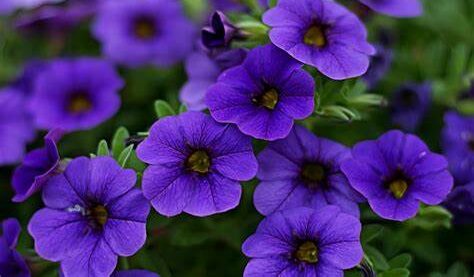Annual plants are an excellent choice for gardeners who love variety and color. These plants go from seed to bloom and then seed again, all within a single growing season. The beauty of annuals is that they give a garden a fresh look every year, allowing you to experiment with new colors, textures, and arrangements. Here, we’ll dive into some of the best annual plants for any garden, considering factors like climate, color, and maintenance needs.
Table of Contents
ToggleIntroduction to Annual Plants
Annual plants complete their life cycle in one growing season. This means they germinate, grow, bloom, produce seeds, and die, all within a few months. Popular among gardeners for their ability to bring bold, season-long color, annual flowers often bloom more consistently and vibrantly than many perennials. They’re ideal for filling gaps in a perennial garden or as the main attraction in beds, containers, or borders.
Annual plants are categorized into two main types:
- Warm-season annuals: These thrive in summer’s heat and need full sun.
- Cool-season annuals: These do well in cooler temperatures, making them ideal for spring and fall.
Let’s explore some of the best options based on garden conditions and specific needs.
Top Annuals for Sunny Gardens
For gardeners with sun-drenched areas, certain annuals thrive in the direct, intense sunlight, showcasing brilliant blooms and vigorous growth. Here are some of the best sun-loving annual plants:
Marigolds (Tagetes spp.)
Marigolds are a staple in sunny gardens due to their vibrant orange, yellow, and red blooms and their resilience to heat. They are also natural pest deterrents, making them a functional choice for vegetable gardens. Marigolds prefer full sun and well-drained soil and can bloom from spring until the first frost.
Zinnias (Zinnia elegans)
Zinnias are known for their wide range of colors, including pink, purple, orange, and white. They grow quickly, and their blooms are long-lasting, making them ideal for cut flower arrangements. Zinnias prefer full sun and well-drained soil and require little maintenance beyond regular watering.
Petunias (Petunia spp.)
Petunias are beloved for their large, colorful blooms and trailing habit, making them perfect for hanging baskets, window boxes, and borders. They come in a variety of colors and can tolerate heat, though they need regular watering. Petunias thrive in full sun but can handle partial shade.
Shade-Loving Annuals
If your garden has shaded areas, don’t worry—there are many shade-tolerant annual plants that add beauty and color to these spots.
Impatiens (Impatiens walleriana)
Impatiens are one of the most popular shade-loving annuals due to their vibrant colors and compact growth. They thrive in partial to full shade and do well in moist, well-drained soil. With colors like red, pink, white, and orange, impatiens add a soft touch to shady garden areas.
Begonias (Begonia spp.)
Begonias are versatile plants that do well in both shade and partial sunlight. They come in a wide variety of colors and textures, and some even have attractive foliage. Begonias prefer rich, moist soil and can tolerate high humidity, making them ideal for shady garden beds and containers.
Coleus (Plectranthus scutellarioides)
Coleus is known for its colorful, textured foliage, which comes in shades of green, red, purple, and pink. Though primarily grown for its leaves, coleus can also produce small flowers. It prefers partial to full shade and does well in garden beds or containers.
Low-Maintenance Annuals
For those who love a beautiful garden but don’t have time for constant maintenance, low-maintenance annuals are the way to go.
Sweet Alyssum (Lobularia maritima)
Sweet Alyssum is a delicate, low-growing annual that produces small, fragrant flowers in white, pink, and purple. It’s perfect as a ground cover, in rock gardens, or along borders. Sweet Alyssum is easy to grow, requires minimal care, and can tolerate light frost.
Cosmos (Cosmos bipinnatus)
Cosmos are tall, airy plants that produce daisy-like blooms in shades of pink, white, and purple. They are highly drought-tolerant and thrive in poor soils, making them one of the best low-maintenance annuals. Cosmos prefer full sun and require little more than occasional watering.
Dusty Miller (Senecio cineraria)
With its silver-gray foliage, Dusty Miller adds an elegant contrast to more vibrant blooms. It tolerates drought and full sun and is incredibly low-maintenance. This annual works well in both flower beds and containers, providing a unique texture and color to any arrangement.
Tips for Growing Annuals Successfully
While annuals are generally easy to grow, following a few key tips can ensure a thriving and vibrant garden:
- Choose the Right Location: Most annuals prefer specific conditions—either full sun or shade. Make sure to select plants suited for your garden’s light conditions.
- Water Regularly: Annuals, especially those planted in containers, need consistent watering. However, avoid overwatering, as this can lead to root rot.
- Use Fertilizer Sparingly: Over-fertilizing annuals can lead to lush foliage but fewer blooms. Use a balanced, slow-release fertilizer at the beginning of the growing season.
- Deadhead for Continuous Blooms: Removing spent flowers (deadheading) can encourage many annuals to produce more blooms throughout the season.
- Consider Companion Planting: Some annuals, like marigolds, help deter pests when planted near vegetables or other flowers. This approach can help maintain a healthier garden ecosystem.
By carefully selecting the best annual plants for your garden’s specific needs—whether it’s a sunny border or a shaded corner—you can enjoy a lush, colorful landscape from spring until the first frost. Experimenting with different annuals each year allows you to explore new colors, textures, and styles, making gardening a fresh experience season after season.




